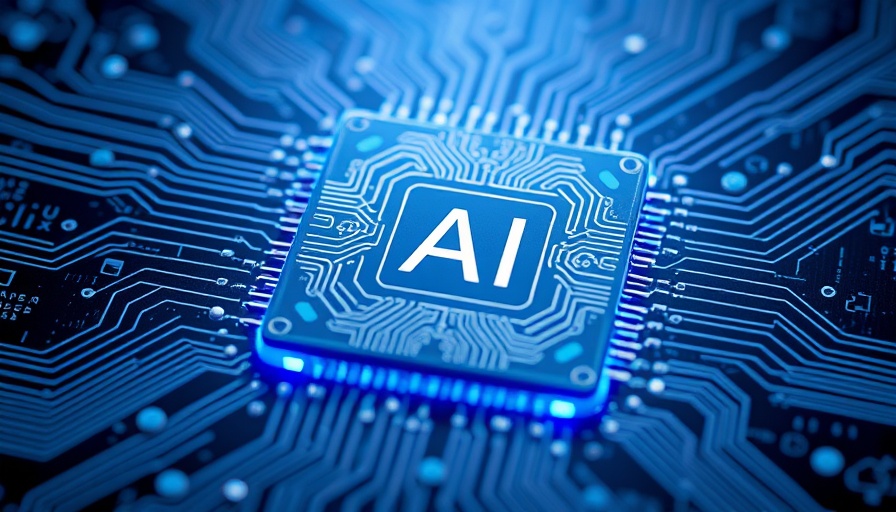
Tesla's AI Chip Strategy: A Shift in Focus
In a notable move, Tesla CEO Elon Musk has announced a streamlining of the company’s artificial intelligence (AI) chip design efforts, marking a significant pivot in its technological strategy. This shift comes in the wake of reports regarding the disbandment of the in-house Dojo supercomputer team, which was primarily dedicated to developing software for Tesla’s autonomous driving features.
Understanding the Implications of the Dojo Closure
The Dojo supercomputer was regarded as a cornerstone of Tesla’s efforts to process massive amounts of data collected from its electric vehicles (EVs). Designed to train autonomous-driving software, many analysts viewed Dojo as a pivotal component that could drive Tesla into new market territories, akin to how Amazon's cloud services transformed its core business.
Elon Musk elaborated on the company’s new direction, stating, “It doesn’t make sense for Tesla to divide its resources and scale two quite different AI chip designs.” Moving forward, efforts will be consolidated on the Tesla AI5 and AI6 chips, which Musk suggests will excel in inference applications while still supporting some training capabilities.
The Broader Trend in Custom Chip Design
Musk's decision to focus on a singular path in chip design echoes a broader trend within the tech industry, where companies are increasingly developing custom chips to minimize latency and reduce operational costs. As Tesla restructures amid rising competition and evolving market conditions, this strategic adjustment may provide the streamlined focus needed to enhance their AI-driven initiatives.
Market Reactions and Expert Insights
Financial analysts have mixed views on Tesla's path forward. Morgan Stanley analysts previously estimated the Dojo supercomputer’s value at approximately $500 billion, underscoring its potential profitability beyond mere car sales. However, concerns remain regarding whether the closure of the Dojo team will hinder Tesla's overall valuation. This delicate interplay between innovation and market dynamics is something that business leaders must keenly observe, as the tech sector constantly evolves.
What This Means for Tesla's Future
The impact of consolidating efforts around the Tesla AI5 and AI6 chips could yield significant advancements in self-driving technology and theta applications, including humanoid robots like Optimus. Musk’s calculated approach suggests that these chips could harness substantial computing power, potentially leading to innovative AI solutions that reach beyond vehicular applications.
How Business Leaders Can Interpret This Move
For business owners and managers, the implications of Tesla's strategy offer valuable insights. Streamlining operations can sometimes yield better outcomes than trying to juggle multiple, divergent projects. As competition intensifies, understanding the importance of focused resource allocation may be vital for driving innovation within your own organizations.
Recommendations for Business Owners
In light of Tesla's AI chip developments and broader industry trends, businesses should consider conducting reviews of their own technological strategies. Explore whether a consolidation of efforts in tech investments could align better with your company’s long-term objectives. Moreover, staying informed about advancements in AI technology can reveal untapped opportunities for enhancing operational efficiency and competitive advantage.
The evolving landscape of AI and tech is something every business leader must engage with proactively. As Tesla adjusts its focus, companies should be ready to adapt, innovate, and prepare for the changes this evolution brings. If you need tailored assistance in selecting a preferred provider to navigate this transformation, get help selecting a preferred provider today.
 Add Row
Add Row  Add
Add 




Write A Comment